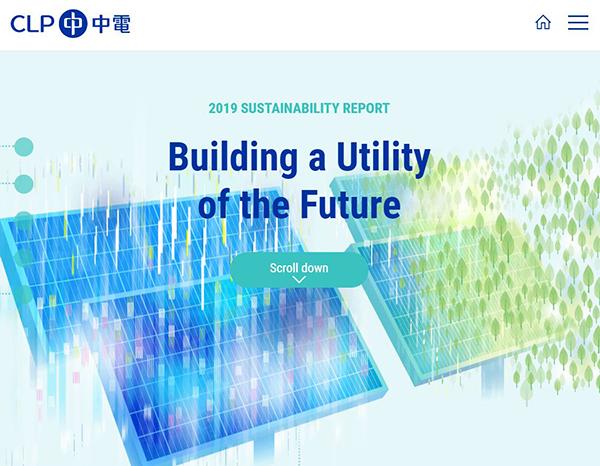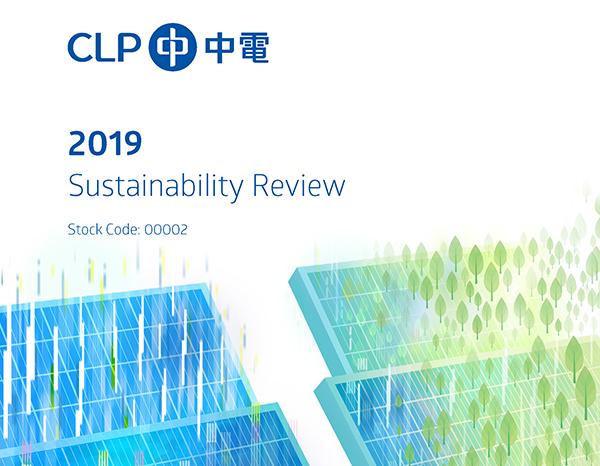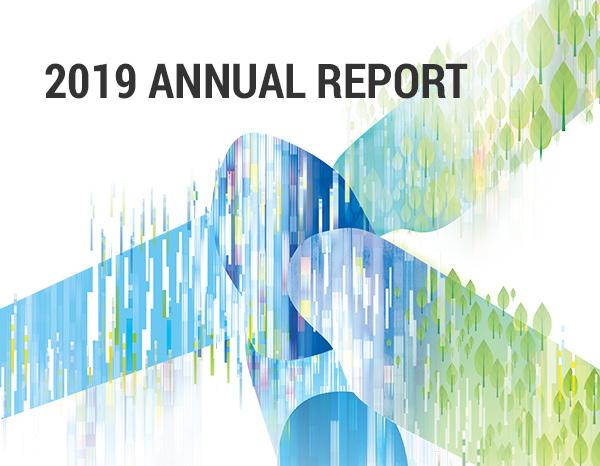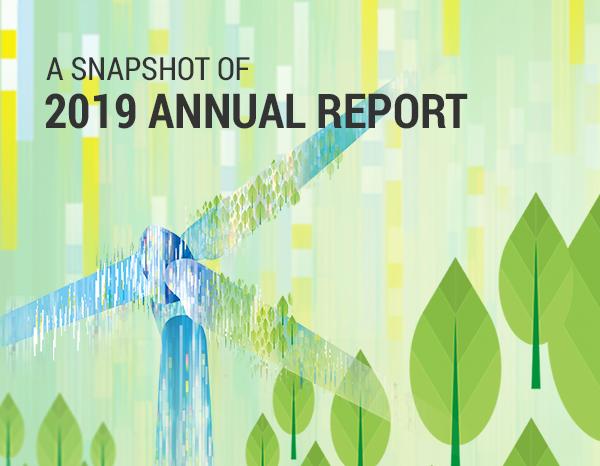New CLP Reports: Building a Utility of the Future at a Time of Transition
The CLP Group has launched its new Sustainability Report and Annual Report, highlighting the Company’s continuous efforts in building a sustainable energy business that will thrive on changes and challenges.
As environmental, economic and social contexts continue to evolve globally and locally, CLP’s strong fundamentals supported the Group in a year of transition, laying foundations for long-term growth.
“At CLP, we have for years taken a long-term view on our investments as well as our shared environment. To stay ahead of challenges, we will continue driving change within the Company to build a sustainable business fit for the future,” CLP Holdings Chairman The Hon Sir Michael Kadoorie and Chief Executive Officer Richard Lancaster said in the 2019 Sustainability Report.
In reviewing the transformative global megatrends that present significant opportunities and risks for CLP in its sustainability journey, decarbonisation and digitalisation were identified as long-term drivers of transition. Priority has also been placed on workforce transformation and reinforcing the Group’s cyber resilience and data protection.
To push forward decarbonisation, a key milestone of CLP was the launch of its updated Climate Vision 2050 last December, in which CLP pledged to phase out its coal-based assets by 2050 at the latest, and not to invest in any additional coal-fired generation assets. The Group is on track to meet its 2020 carbon intensity target of 0.60kg CO2/kWh as the 2019 figure decreased to 0.62kg CO2/kWh. It is also committed to revisiting and strengthening its decarbonisation targets at least every five years.
Given the increasing risks of a changing climate, CLP has taken steps to consider the resilience of its Climate Vision 2050 against possible climate-related scenarios. To help ensure transparency, it has also advanced its disclosure in accordance with the recommendations by the Task Force on Climate-related Financial Disclosures.
On the Group’s energy sent out, coal-based generation continued to decrease. Energy sent out from renewable and non-carbon emitting sources accounted for 8.7% and 30.6% of the total, respectively.
In Hong Kong, about half of the electricity sold by CLP will for the first time be generated by natural gas in 2020, in line with the Government’s fuel mix target of increasing gas-fired power generation to around 50%. Added to the about one-third zero-carbon energy from Daya Bay, energy-from-waste in Hong Kong, and the local renewable energy integrated to the grid through the Feed-in Tariff scheme, this will mark a significant step forward in the city’s transition to a lower-carbon future. In addition, CLP has also invested in transmission assets in India for the first time, further supporting the energy transition via improved efficiencies and grid connectivity.
Harnessing the power of technology is another priority of CLP. Over the past year, it made progress in areas of big data, artificial intelligence and smart energy services. The launch of Smart Energy Connect is one of its recent initiatives. As a digital marketplace of energy management services, it offers a range of applications to help businesses and organisations manage energy use in a greener and smarter way.
Furthermore, investment opportunities in new energy services such as those emerging from the development of smart cities will continue to be pursued. CLP will also seek to tap into the best minds in the start-up community through engaging in accelerator programme partnerships.
As CLP’s operations are becoming more digital, it has stepped up its governance on information security. A Cyber Security Strategy and related improvement programmes were approved by the Board in 2019. The Group also appointed a new Senior Director to implement unified measures across CLP.
To meet the needs of energy transition, CLP has poured efforts into attracting and retaining a skilled workforce while providing employees with continuous training and further exposure to low-carbon and innovation projects. These moves are supported by ongoing investment in diversity and inclusion, safety enhancement, and generational knowledge transfer.
In its journey to becoming a Utility of the Future, CLP is committed to identifying and prioritising the environmental, social and governance topics that are considered the most important to CLP and its stakeholders. Any reader who sends feedback to CLP on its Sustainability Report, Annual Report or A Snapshot of 2019 Annual Report through an online survey or via email on or before 30 June 2020 will receive four CLP Carbon Credits, which can be used to offset their carbon footprint.
Feedback on the Sustainability Report and the Annual Report can be sent to srfeedback@clp.com.hk and cosec@clp.com.hk respectively.
Learn more about CLP’s performance and outlook:





